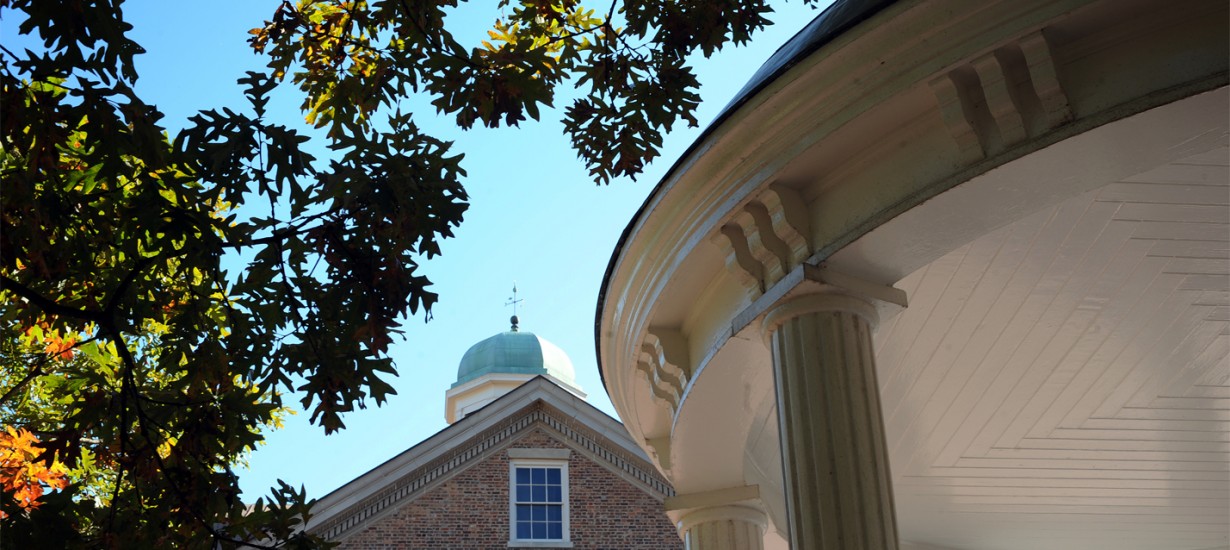Accreditors Place UNC on One Year of Probation

The University has been placed on probation for one year by its accreditation agency, the Southern Association of Colleges and Schools, after SACS’ second review of UNC’s academics-athletics case and UNC’s action in response to it.
SACS President Belle Wheelan said it was the first time in her 10 years with the commission that SACS had put a school on probation for matters of academic integrity.
“It is very serious, since it’s gone on for so long and so many students were impacted by it,” Wheelan said, referring to the case of academic fraud centered in the former department of African and Afro-American studies that went on for 18 years and involved athletes disproportionately.
In deciding on probation, SACS’ board of trustees cited UNC’s failure to meet its standards in seven categories: integrity, program content, control of intercollegiate athletics, academic support services, academic freedom, faculty role in governance and handling of federal funding for financial aid.
The board was satisfied with UNC’s progress in 11 other areas of concern it had cited last fall, and Wheelan said she was pleased with progress toward reform under UNC’s current administration.
The University will get details within a few weeks on what it must do to reach compliance in the seven categories; then it will go before SACS’ Compliance and Reports Committee. It could be cleared a year from now or could get a second year of probation. A school still out of compliance after two years loses its accreditation, a prelude to losing federal funding.
Chancellor Carol L. Folt, in a statement that said the agency’s vice president, Cheryl Cardell, had called to report the decision by SACS’ board of trustees, said that “the Commission took care to acknowledge the University’s adoption and implementation of the many and significant reform measures in recent years.” The carolinacommitment.unc.edu website includes the chancellor’s statement.
In an interview, Folt said: “We have a very good relationship with SACS. They have been forthright. We have done, I believe, everything possible to respond and even go above and beyond. I was actually quite pleased that the president made a couple of public statements talking about the extent to which we have really been doing yeoman’s work to bring the University forward to get these extensive reforms in place, yet I also appreciate the need for an accrediting agency to verify the reforms that are in place.”
SACS opened its latest probe late last fall, saying the information in the Wainstein report on academics and athletics irregularities raised questions about UNC’s compliance with its principles of accreditation. The commission also asserted that UNC may have withheld some of what it knew about the issues during its review in 2012-13. SACS said the University “was not diligent in providing information to the Committee” as it gathered more information about the scandal after its previous review.
UNC officials denied they had withheld information from the commission.
SACS first investigated UNC in 2012, and early in 2013 it notified the University that it was out of compliance with principles of accreditation in the scandal involving academic fraud in the then-department of African and Afro-American studies. It advised UNC to “take immediate steps” to come into compliance with its standards on academic policies, academic support services and student records and with the federal definition of college credit hours.
“The institution did not provide sufficient evidence that it had addressed the breaches of academic integrity related to degrees that were awarded to students who were given credit for courses determined by the University to be ‘aberrant,’ ” Wheelan wrote at the time.
(SACS did not have access to information on some reforms the University already had put in place at the time of that letter. By then, UNC had adopted new governing structures, monitoring systems and regular reviews, and it had placed limits on the number of independent studies courses a student can take and that a faculty member can teach. It also had tightened procedures, controls and monitoring in the Academic Support Program for Student-Athletes.)
The commission stopped short of placing UNC on probation that time. In June 2013, SACS announced it had decided not to sanction the University. It asked UNC to provide a monitoring report by the following June on continued progress with academic procedures in the department. UNC subsequently offered free makeup classes to about 80 students and more than 300 alumni who had enrolled in AFAM courses that were not taught as advertised. Weinstein had reported that the paper classes ended in 2011. The offer of the free makeup classes drew little interest.
Last week, the NCAA charged the University with lack of institutional control in its alleged failure to monitor its former department of African and Afro-American studies and its academic support center for athletes and asserted that UNC failed to rein in both when some employees began working together to perpetrate academic fraud over an 18-year period. UNC has until August to respond to those allegations; at that time, it could dispute some of the NCAA’s allegations and could propose self-imposed sanctions. The NCAA Committee on Infractions then has 60 days to hold a hearing to decide whether to punish UNC and, if so, how.
